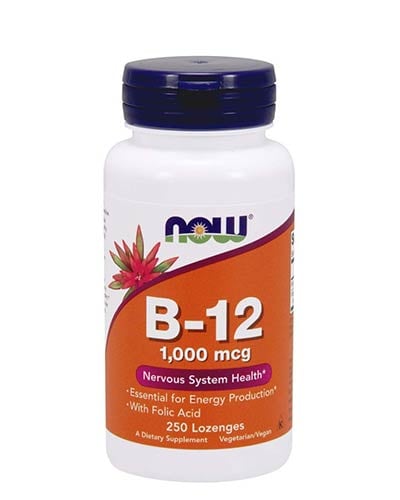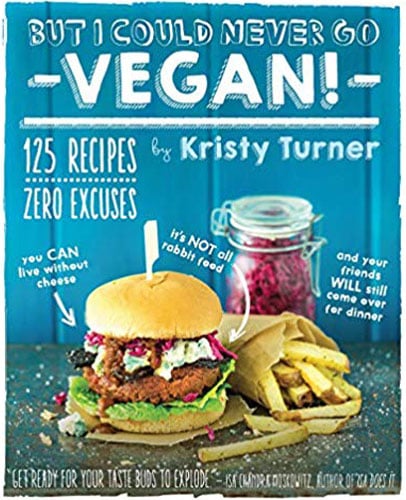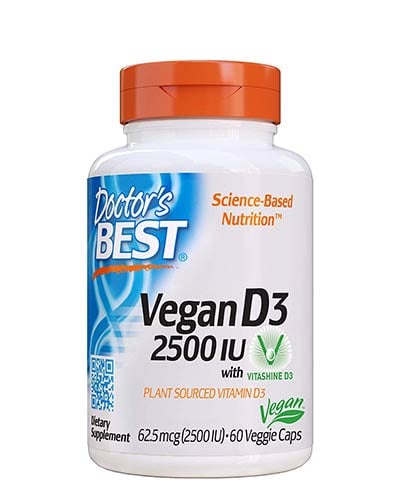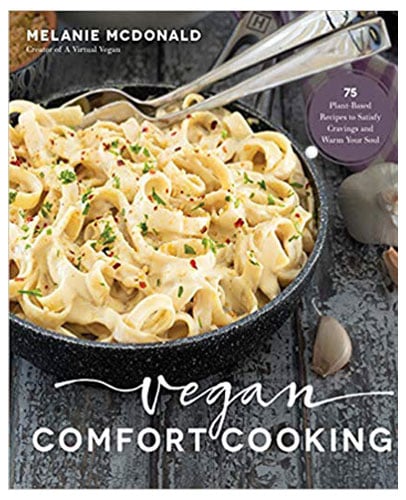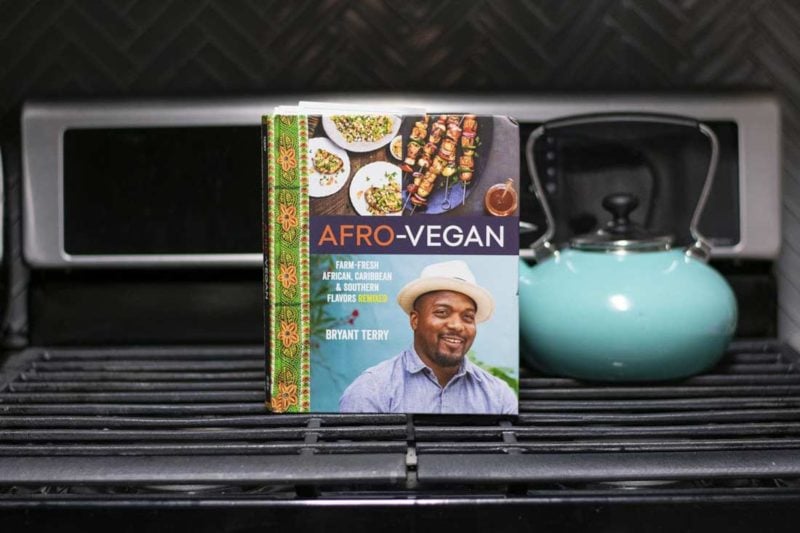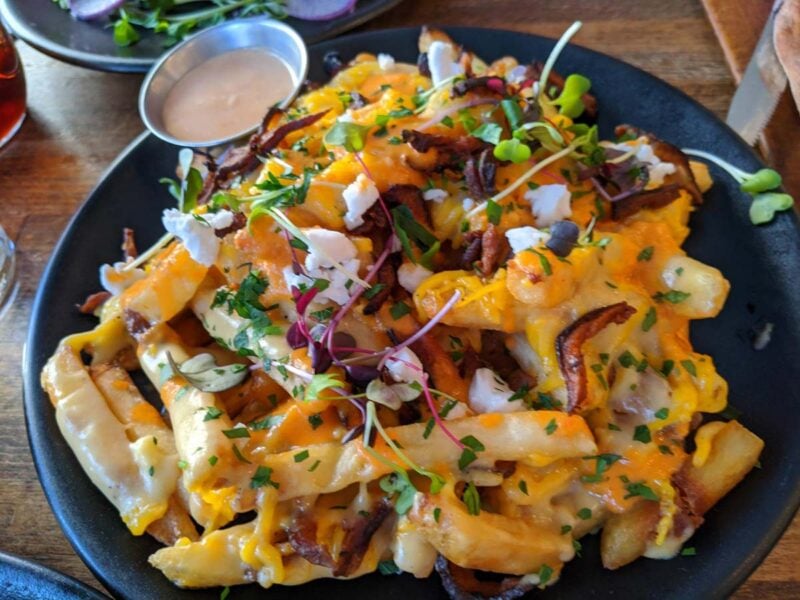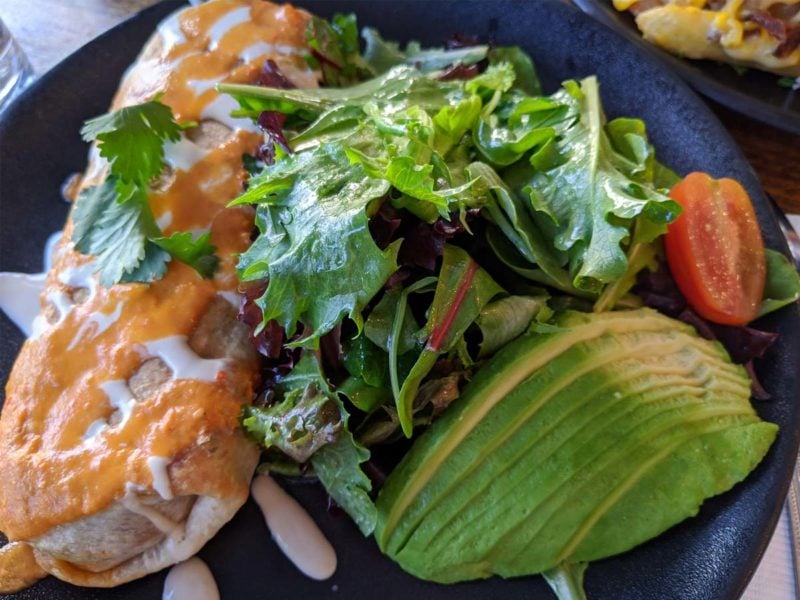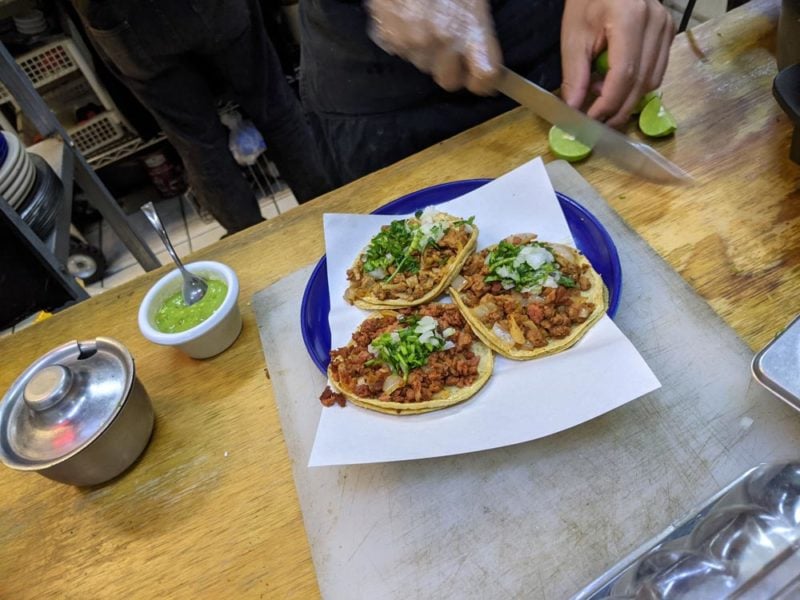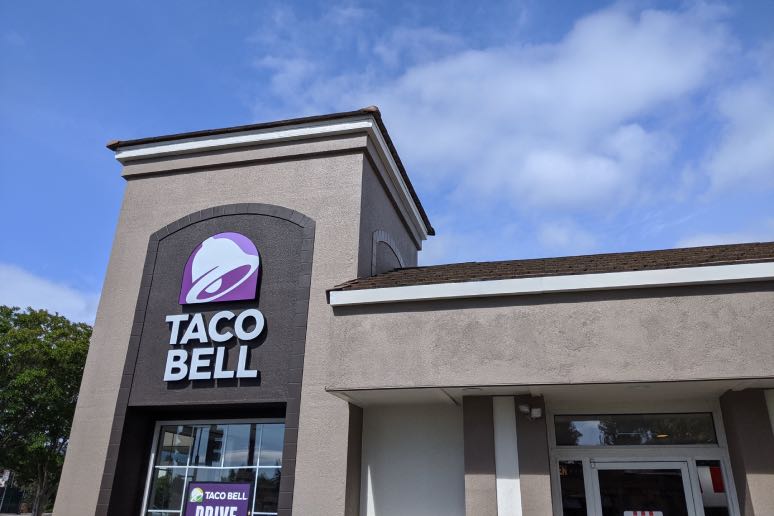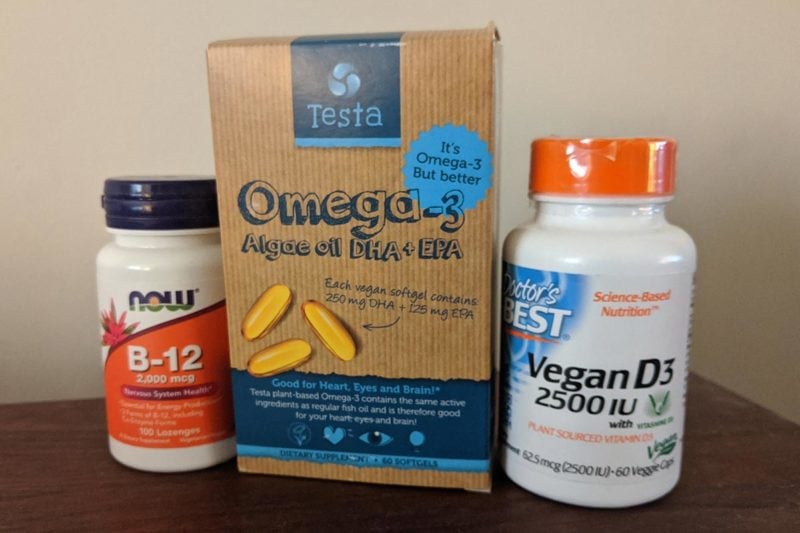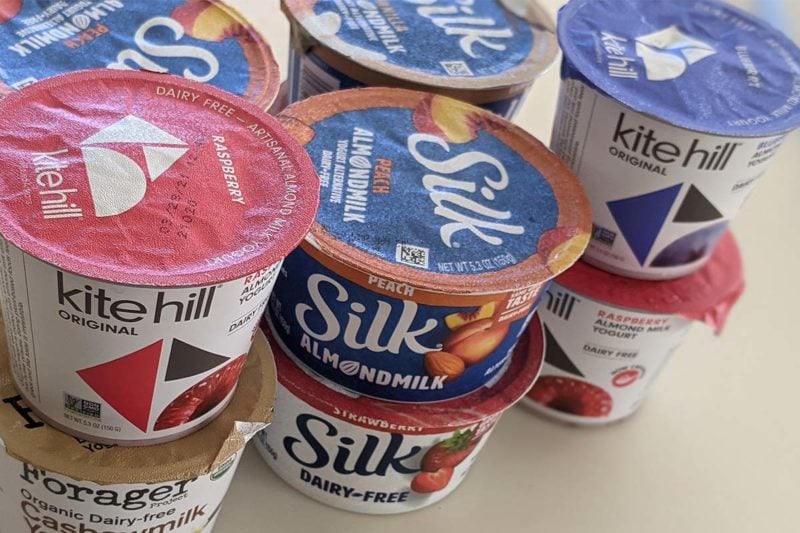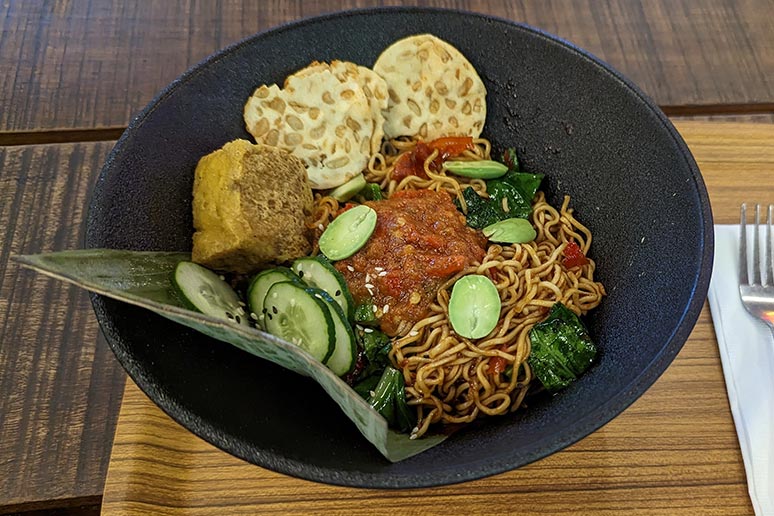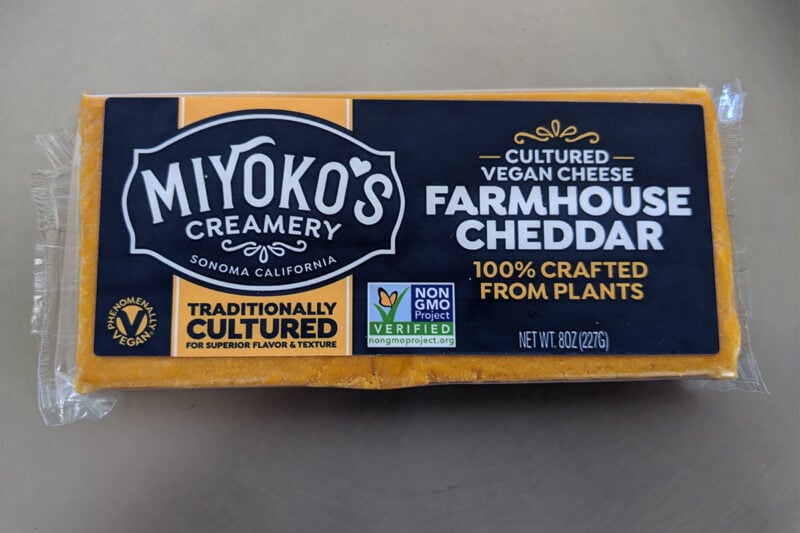- Isn’t it hard to be vegan?
- Where do you get your protein?
- I only eat free-range eggs. That’s okay, right?
- Isn’t it expensive to be vegan?
- I could never be vegan; I love the taste of meat too much.
- Doesn’t the bible endorse eating animals?
- Haven’t we evolved to eat meat? It’s natural!
- What would happen to all the animals if we stopped eating them?
- What’s wrong with honey?
- You don’t have to kill animals to get dairy and eggs, so what’s wrong with those products?
- Cows need to be milked, don’t they? We’re doing them a favor.
Isn’t it hard to be vegan?
It’s probably much easier than you think!
Let’s be honest. If you grew up eating meat, milk, and eggs in almost every meal, the idea of going vegan certainly seems hard—maybe even impossible!
But most vegans discover the switch is far easier than they ever imagined. All you have to do is focus on crowding out animal-based foods rather than cutting them out. That is, don’t eliminate a meat, dairy, or egg product from your diet until you’ve found two or three great new vegan foods than can take its place. When you focus on crowding rather than cutting, you eliminate all feelings of strain and sacrifice. Your diet actually becomes more interesting, varied, and delicious as you fill it with more and more vegan foods.
Some ideas for beginning your transition:
- Remember that you’re not the first person to do this, so you don’t have to figure it all out by yourself. Invest in a vegan guidebook, which can provide invaluable pointers while making your journey quicker and easier. But I Could Never Go Vegan is a great choice because it’s nicely written, full of recipes, and has gorgeous full-color food photography throughout. The Ultimate Vegan Guide is likewise loaded with helpful advice, and costs just 99 cents on Kindle (plus, you can read the first edition for free on Vegan.com.)
- Visit your closest natural foods store, and buy at least ten vegan products you’ve never before tried.
- Buy a few basic vegan cookbooks. We highly recommend Quick-Fix Vegan and Everyday Happy Herbivore as two perfect cookbooks for aspiring vegans.
- Visit Yelp.com and do a search for Vegan to see what vegan-friendly restaurants are in your area.
- Check out our 100 Easy Vegan Foods list.
- Subscribe to our weekly Vegan.com eNewsletter, for recipes, videos, tips, tricks, and ideas.
- Pick up a good vegan nutrition book like Vegan for Life to make sure you steer clear of any needless nutrient deficiencies.
Don’t put pressure on yourself. Just make a point of constantly trying new vegan foods, and move at whatever speed you feel comfortable. If you make a mistake and end up consuming animal products, don’t call the whole thing off. You’ll find that over time, it gets easier and easier to stick with a mostly or entirely vegan diet.
Where do you get your protein?
Despite what you may have heard, protein is actually not much of a worry for most vegans.
Not so long ago, conventional wisdom had it that vegans and vegetarians would inevitably develop dangerous protein deficiencies. But over time this myth has largely died out, doubtless due to the fact that have been virtually no instances of vegans dropping dead from lack of protein.
Unfortunately, a harmful counter-myth has arisen within the vegan world: that plant-based foods are so loaded with protein that vegans need never give the topic a thought. That’s an unreasonable belief that has set a lot of vegans up for inadequate protein intake, even if they’ll never be hospitalized for deficiency. Protein is a vital nutrient and falling short of your needs is harmful in a variety of ways. So it’s worth making sure you’re incorporating several rich sources of protein into your everyday diet. Here are some protein-rich vegan foods that will help ensure your needs are met.
Maybe the best approach to making this happen is to make sure that most of your meals include a solid source of protein. That can mean using nuts, seeds, or gomasio as a garnish. It could mean adding sautéed tempeh or vegan meats to your spaghetti sauce. Or it could mean making a side-dish of fried tofu mixed with a little barbecue sauce and a dusting of nutritional yeast. If you construct your diet with protein in mind, you’ll find an abundance of vegan foods to meet your needs. But protein is just the start of nutrients worth paying attention to: also keep an eye on zinc, iron, calcium, and especially Vitamin B-12. For more on these and other nutrients, visit our vegan nutrition page.
I only eat free-range eggs. That’s okay, right?
Free-range is certainly better than caged eggs, but virtually every commercial free-range egg farm slaughters its hens.
When it comes to animal welfare, free-range eggs are certainly better than battery cage eggs. Sometimes even a lot better. But better isn’t perfect, and free-range eggs are far from perfect.
The hatcheries that provide hens to most free-range egg farms kill their male chicks immediately upon hatching. These newly-hatched male chicks are generally ground up alive; in other cases they smother in garbage bags or dumpsters.
Even if kept in spacious conditions, free-range hens can have an unpleasant life. Like their battery cage counterparts, they’ve been bred to lay eggs at especially high rates, which in turn exposes them to all manner of health problems. And nearly all hens, both caged and free-range alike, are slaughtered before reaching the midpoint of their natural lives. That’s because egg yields decline as the hens age, and the cost of purchasing new hens is trivial when set against the increased egg output of younger birds.
Finally, since cage-free eggs can cost more than twice the price of conventional eggs, there are countless egg farmers who have a big incentive to do the bare minimum possible to label their eggs as cage-free. Unless you personally visit the farm and check the conditions out for yourself, the quality of life for the hens who produce your eggs can fall far short of your expectations.
Isn’t it expensive to be vegan?
Once you learn the basics, your food bill can be lower than omnivores while consisting of higher-quality food.
There’s plenty of cheap yet high-quality vegan food out there, and the trick to finding it all is learning how to shop effectively. Once you learn a few basic shopping tips, it’s actually easier to eat an affordable vegan diet than one that contains animal products.
The key to being vegan on the cheap is to buy unprocessed foods in bulk. Every good natural foods store has a bulk section where you can buy everything from beans to grains to nuts to granola. If you can keep most of your purchases to items costing under $3 a pound your grocery bill will be remarkably low.
But what about produce? You’ll dramatically cut costs if you learn when different fruits and vegetables hit peak of season. In North America, that means peas and strawberries in May, cherries in June, peaches and watermelons in August, and apples in November. When you buy produce items at its peak of season, you’ll get the highest quality food at the lowest price. If you extra-motivated to minimize your produce costs, remember that most supermarkets offer outrageously good sale prices on a few produce items every week—just check the market’s weekly flyer when you walk into the store.
Amazon.com can be a great source of inexpensive convenience foods. We’ve collected Amazon’s best vegan food deals on our grocery page.
The one area where vegan foods consistently cost more is frozen dinners. That’s largely because vegan offerings tend to be made from high quality organic ingredients, whereas conventional TV dinners are made from the worst factory-farmed dreck imaginable. If most of your food is frozen vegan dinners, you’ll undoubtedly have a higher grocery bill than a typical omnivore. But you can get around this by learning to cook. Two cookbooks are specifically geared to eating cheaply on a vegan diet: Robin Robertson’s Vegan on the Cheap, and Ellen Jaffe Jones’ Eat Vegan on $4.00 a Day.
I could never be vegan, I love the taste of meat too much.
Just try some of the new vegan meats on the market; you’ll probably be very impressed.
You’ll be amazed by how much meat alternatives have improved in the past few years. In fact, some of the vegan meats on the market today are so convincing that many die-hard meat eaters can’t even tell the difference. There are wonderfully convincing versions of hamburger, chicken, bacon, deli meats, and even shrimp and jerky.
And don’t forget falafel! These flavorful and satisfying balls don’t taste at all like meat, but stuffed into a pita with veggies and tahini dressing they’ll leave you as satisfied as any hamburger.
If the idea of going 100 percent meat-free seems too much for you, you can still make a big difference by cutting out meat products you eat but don’t particularly enjoy.
Doesn’t the bible endorse eating animals?
The bible actually has contains some remarkably strong passages in favor of veganism.
When it comes to food, the bible sends a lot of mixed messages. But there are some surprisingly pro-vegan bible passages. The Old Testament’s very first reference to food, Genesis 1:29, seems a clear admonition to be vegan:
And God said: ‘Behold, I have given you every herb yielding seed, which is upon the face of all the earth, and every tree, in which is the fruit of a tree yielding seed—to you it shall be for food.
Later in the Old Testament, when God lays down which meats are permissible (kosher or halal), you get the sense he’s doing so begrudgingly, after being nagged into it by people lacking the fortitude to eat healthier vegan foods.
The Old Testament’s first book of Daniel likewise offers a strong endorsement for vegan eating. When Daniel and his companions visit the king, Daniel asks permission for the group to eat only vegetables and water for ten days. At the end of this time they’re in clearly superior health to other guests who ate animal-derived food from the king’s table.
To be clear, there are plenty of biblical references that support meat-eating. So no matter whether you want to be vegan or you want to eat meat, you’ll find biblical references to defend your position.
Haven’t we evolved to eat meat? It’s natural!
The question isn’t whether humans have in the past relied on meat to survive, the question is whether there’s any clear benefit to eating meat today.
There’s no doubt that at many times in history, especially during periods of war and famine, the ability for people to eat meat helped ensure their survival. Likewise, there are some parts of the world today where local populations depend of fish, poultry, or livestock for protein and calories. That’s because marginal lands that won’t support agriculture can often still support the grazing of livestock, and some coastal areas have insufficient land for farming but access to substantial amounts of fish.
That said, few people living in developed countries can credibly claim that their survival depends on animal products. In terms of nutrition, there’s nothing in animal products that isn’t readily available from a well-planned vegan diet.
And if we were really intent on feeding the world, we would stop feeding a huge portion of the worldwide grain crop to livestock (which entails massive food waste), and instead grow grains for human consumption.
What would happen to all the animals if we stopped eating them?
Wildlife populations would surge, as new habitats were freed up by humankind’s smaller dietary footprint.
Domesticated cattle and chickens are poorly suited for life in the wild. So in a world that’s increasingly vegetarian, we would see their numbers decline with every passing year. Given that most of these domesticated animals suffer incredibly on factory farms, it’s probably best for everyone involved if the number of farmed animals raised worldwide falls into steep decline.
As fewer farmed animals are raised, much of the land that’s currently being used for pasture or to grow feed crops would revert to nature. So a world with fewer farmed animals would be one with far more wildlife, as well as far more quality habitat for animals currently threatened by human activities.
Of course, nobody’s predicting the extinction of modern-day cows, chickens, and turkeys. There’s little doubt that animal agriculture will exist for decades to come. With any luck, though, the number of animals raised for food will one day be counted in the millions rather than the billions.
What’s wrong with honey?
There are good ethical reasons to avoid it, and other sweeteners are superior.
Owing to the fact that it’s produced by bees, honey is not a vegan product. That said, it’s a real stretch to compare the ethics of honey production to the nightmare conditions related to feedlots, gestation crates, battery cages, and so forth.
Probably the most objectionable aspect of honey is that it’s exploitive. A typical bee produces less than two teaspoons of honey in her month-long life. When taking a hive’s honey, beekeepers usually swap back some corn syrup so the bees won’t starve. But given the massive amount of work done by each bee for such a tiny amount of honey, you’ve got to ask whether this is a fair trade.
Additionally, honest beekeepers will readily acknowledge that some bees invariably get crushed when the hive’s honey-storage slots are emptied. And some unscrupulous beekeepers will dose their hives with antibiotics as a way of fending off disease. Even more disturbingly, when a hive develops a parasitic infection beekeepers commonly burn it—along with all the bees inside.
Luckily, it’s easy to avoid honey. Maple syrup, rice syrup, and agave nectar can all be used in place of honey with no loss of flavor.
You don’t have to kill animals to get dairy and eggs, so what’s wrong with those products?
The truth is that all commercially-raised animal products—including milk and eggs—involve killing.
When it comes to killing, the only difference from eggs and dairy products is that while meat comes from an animal who has been slaughtered, milk and eggs come from animals who will be slaughtered. Guaranteed. Every dairy cow and egg-laying hen inevitably goes to slaughter (unless they die prematurely from disease).
Milk and eggs have one major thing in common: they’re the reproductive products of young females. As cows and chickens age, their milk and egg yields decline markedly. In consequence, nearly all dairy cows and layer hens are sent to slaughter at less than half their natural life expectancy; replaced by younger animals who will also in turn be slaughtered when their yields decline.
Add to this that the America’s egg industry breeds more than 200 million replacement hens every year, and that it’s standard practice for dairy cows to be kept pregnant nine months out of every year. What happens to the males born in these systems? Male chicks are unwanted since, being of the egg-laying variety, they can’t profitably be raised for meat. These animals are generally ground up alive, or smothered within hours of hatching. Male calves produced by the dairy industry likewise have little value. Some are sold for a pittance to veal farms, while others are slaughtered immediately upon birth.
These dark realities tend to be true regardless of whether we’re talking about the worst factory farms, or the best free-range egg farms and organic dairies.
Cows need to be milked, don’t they? We’re just doing them a favor.
Once you understand how the dairy industry operates, you’ll see that cows get a raw deal.
A cow only needs to be milked because she had her calf taken away from her within a day or two of birth. The calf gets a cheap replacement formula generally made from slaughterhouse plasma and vitamins. Perhaps this strikes you as an unfair deal all the way around. And in a few months, after the cow’s milk yields peak, she’ll be re-impregnated once again to start the whole cycle all over. For more details, check out our page on dairy cows.
All in all, it’s a terrible life for these animals, especially the cows who live on “dry lot” dairies who are confined in crowded sheds. Disease is common, especially mastitis—an infection of the udders brought on by the enormous milk yields of modern-day dairy cows.
Luckily, it’s never been easier to go dairy-free. Excellent vegan versions of traditional dairy products are abundant and easy to find. Most groceries today carry soy, rice, and almond milk. And you can find excellent vegan cheese and ice cream at any natural foods store, and in better supermarkets. It’s also easy to find non-dairy yogurts, margarine, and even coffee creamer. Look for all these products in the dairy case.


